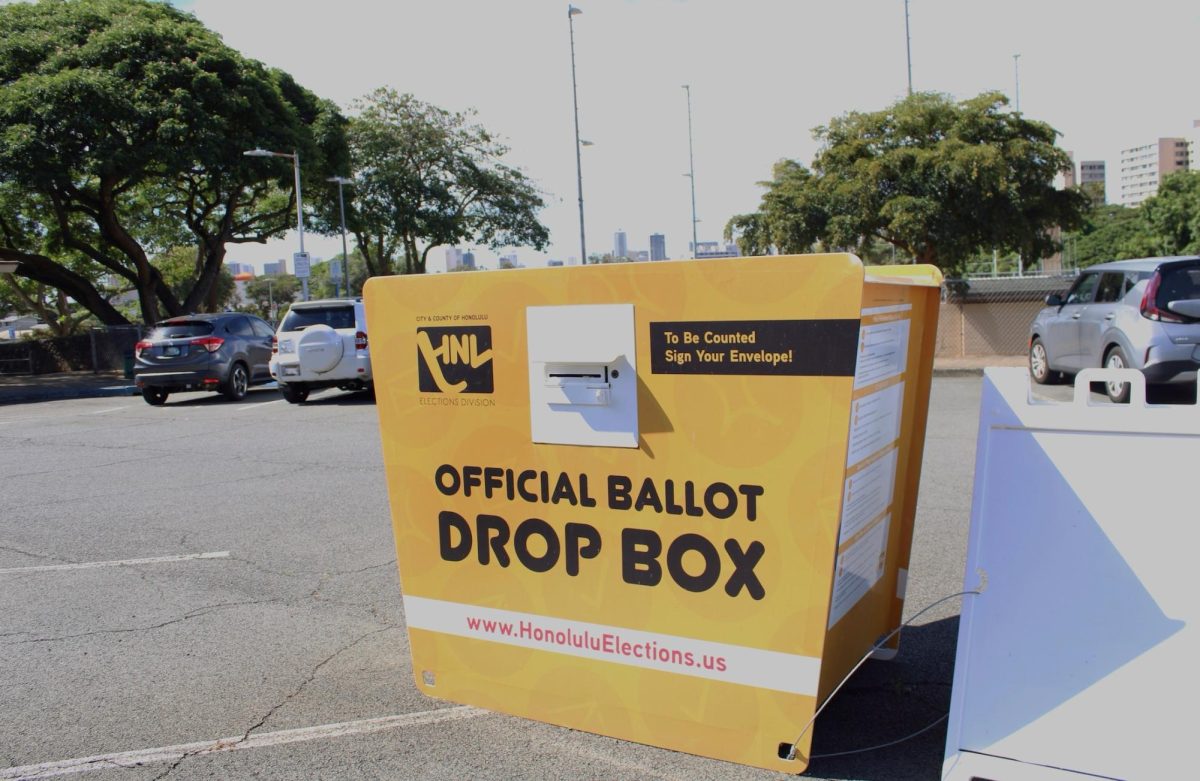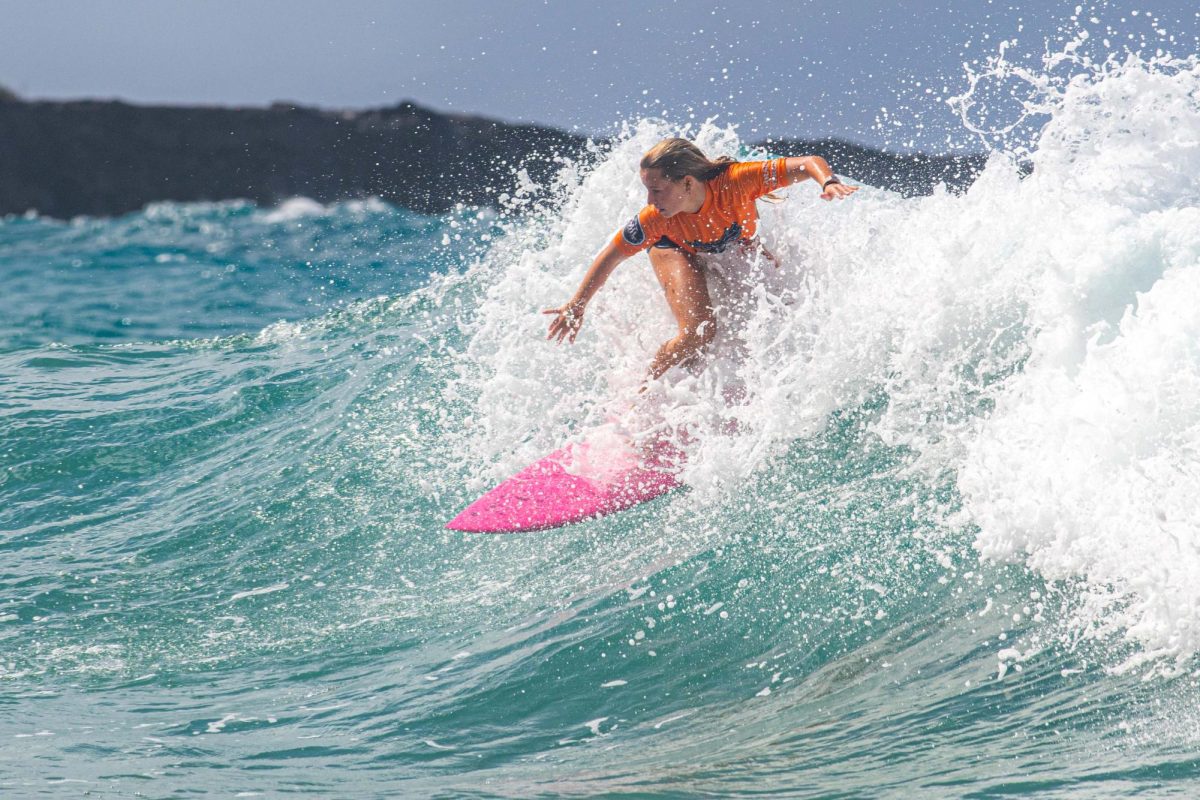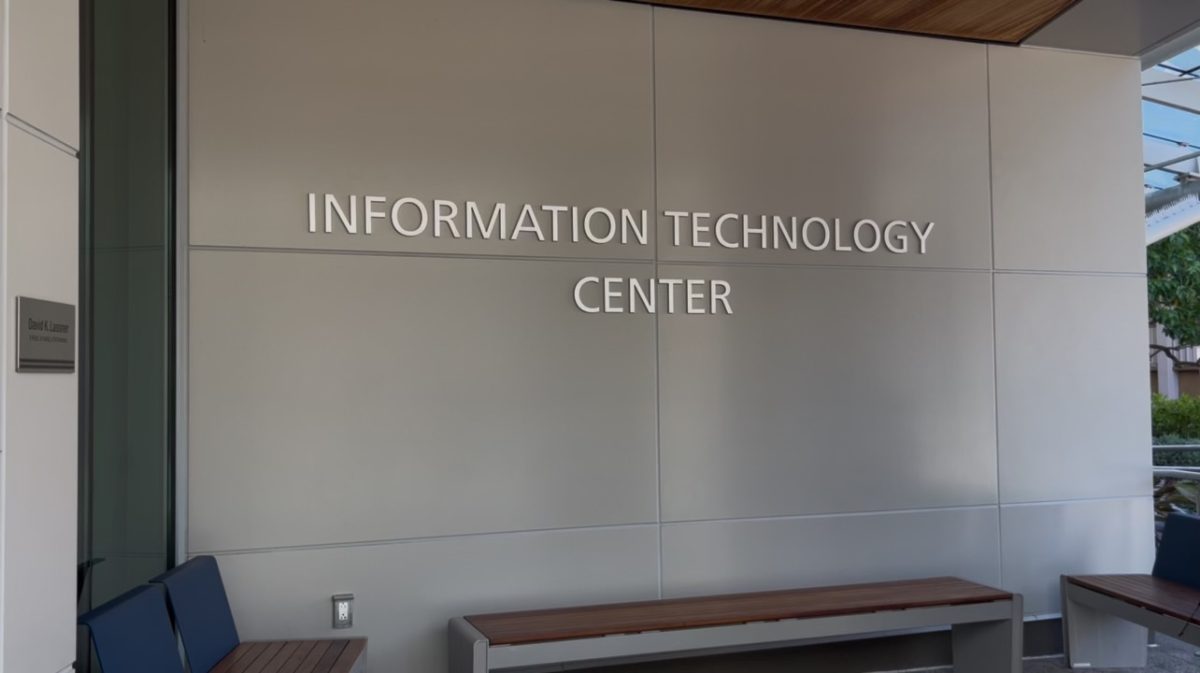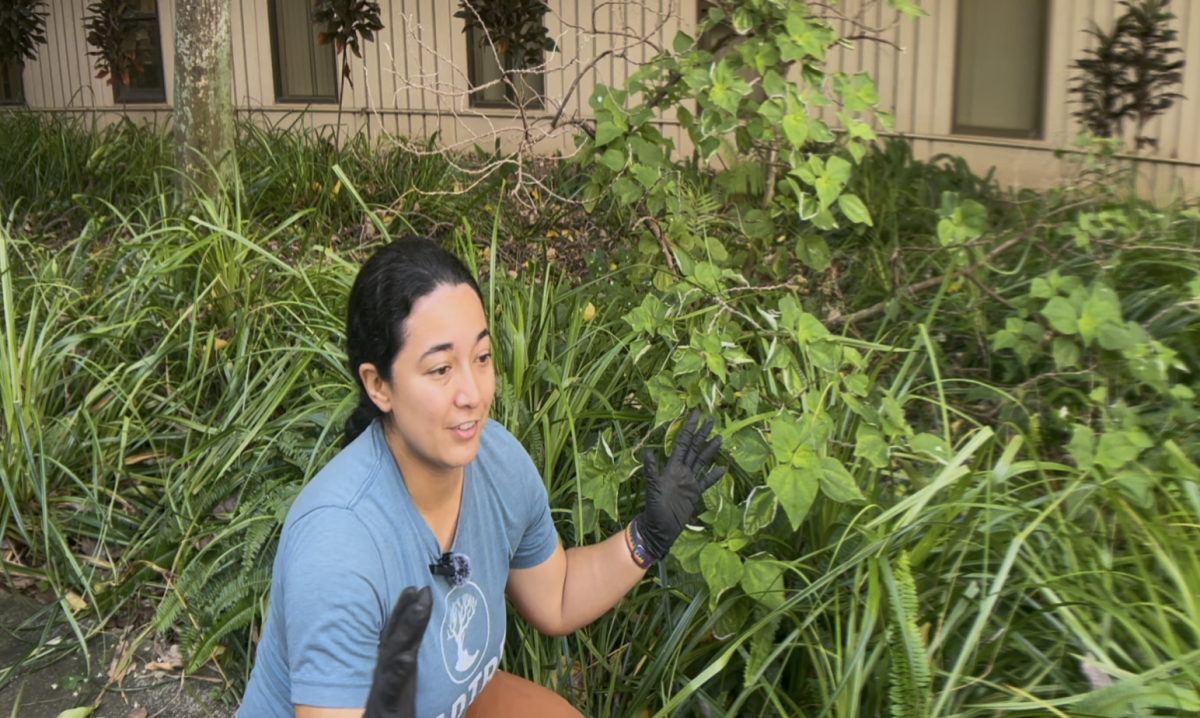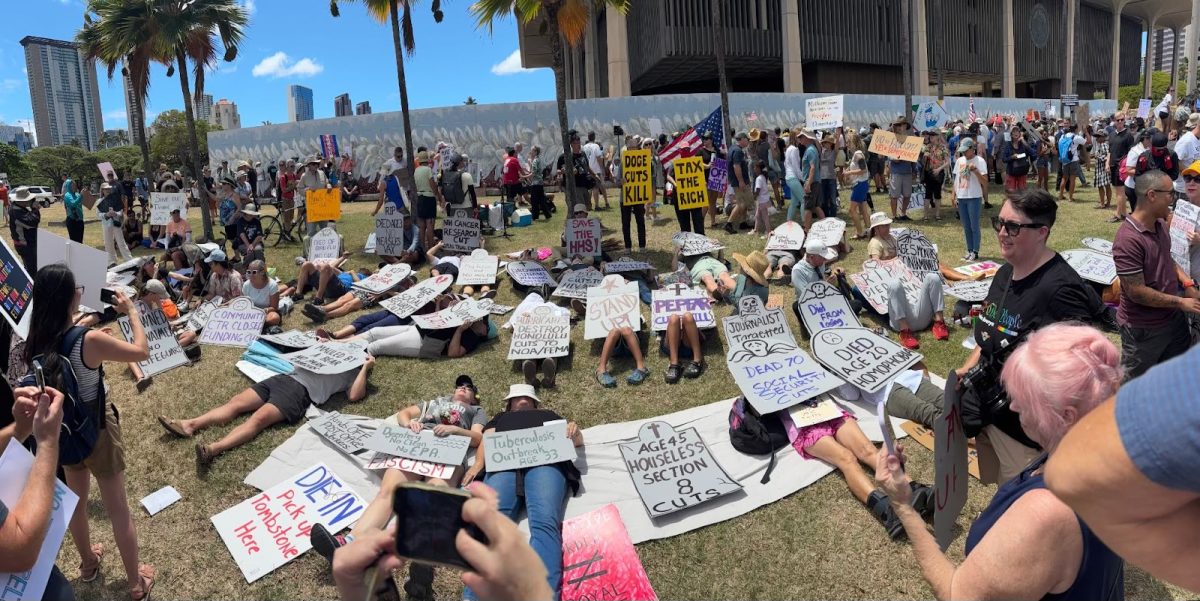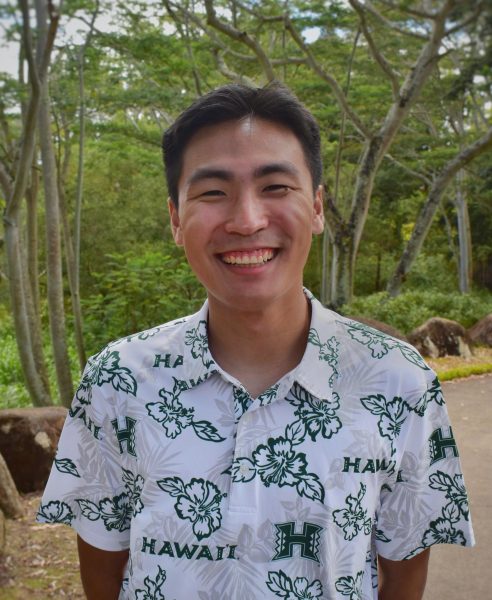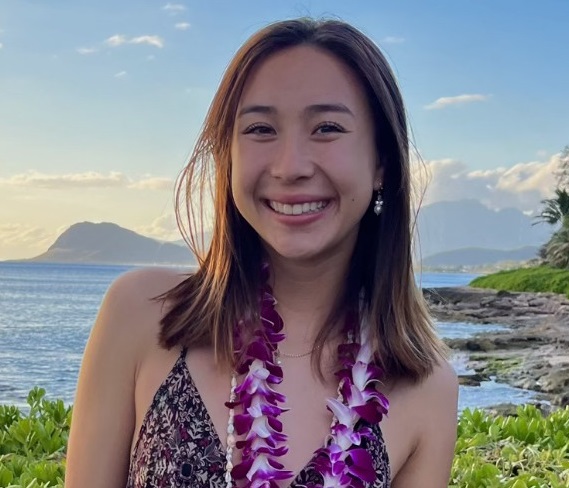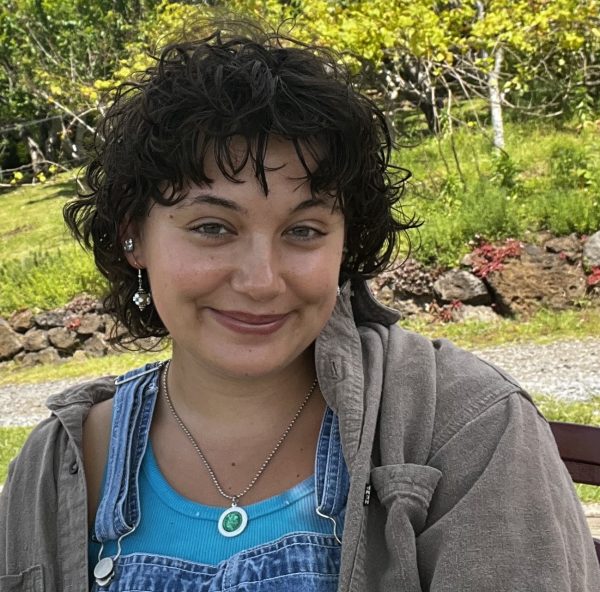With the election just days away, the campaigns for Vice President Kamala Harris and former President Donald Trump have spent the last weeks ramping up efforts to win every vote, including that of a growing demographic: youth.
The youth vote is of growing significance, but factors like low enthusiasm have plagued turnout rates, with both campaigns hoping to change that.
Logan Yonemori, born and raised in Hawaiʻi, is a student at the University of Portland who’s a first time voter that identifies as a political independent. He said he’s been especially influenced by Harris’ aggressive social media campaigns on Instagram and TikTok.
“Just seeing those pop up on my feed and seeing how a lot of them are really influential and effective, so if I just saw those, that would persuade me to vote for this candidate,” Yonemori said.
But while social media campaigns can appeal to the masses, some urge caution due to the contested or unknown nature of their origin on some platforms, such as TikTok.
“I’m not saying social media is a bad thing; I think you need to understand the origins and whoever is controlling that social media,” said David Stilwell, former Assistant Secretary of State for East Asian and Pacific Affairs under the Trump administration. “You have to understand who that is because that’s going to tell you a lot about what you’re going to see.”
While social media is one factor, other young voters say Harris’ strategy of focusing solely on pointing out Trump’s flaws is not the most effective way to sway voters.
Cardenas Pintor is a UH student and political and social activist who’s worked on various local and state political campaigns. He’s also an elected official serving as the vice chair of the Kalihi-Pālama neighborhood board.
“While both candidates are trying to appeal to youth voters, you always have to give them a reason on why to vote,” Pintor said. “I need to know what you as a candidate will provide for me. I do know a lot of former president Trump’s policies, but at the same time, what is Vice President Harris’s plan for these issues?”
In the most recent presidential poll conducted by Harvard, Harris leads Trump by 28% (60% v. 32%) among voters under the age of 30, on par with President Joe Biden’s performance with young voters in 2020.
A portion of the youth vote is made up of college students who usually have two options for voting. Depending on a state’s residency laws, some university students can choose to register to vote in their home states through absentee ballots, while others have the option to register in their college state.
Some out-of-state college students who have both options available choose to vote strategically in the state where their vote may be more consequential.
“In Oregon, it might be a little more influential to vote just because it’s a little less Democratic than Hawaiʻi,” Yonemori said about choosing to vote in Oregon, rather than Hawaiʻi.
But, regardless of voting location and party affiliation, many say this election is simply far too important to stay on the sidelines.
“I know this election’s very consequential, especially for people of Gen Z, so I wanted to be part of that movement to vote,” Yonemori said. “If you don’t vote, you can’t complain about the President because you didn’t input your opinion.”
“I think voting is very important and I was really excited because it’s my first time voting for President,” said Sarabella Stusen, a UH student voting absentee in her home state of Arizona which is a crucial swing state.
While the youth vote may not be the deciding factor in this election compared to other demographics, some warn about overlooking a core bloc whose electoral power could play an increasingly important role in future elections.
“I don’t think youth voices should be undermined because they will come up to vote, and whether they get the presidential candidate they want or not, no matter what, they will still make their voices heard even after the election is over,” Pintor said.
For more information on voter registration in Hawaii, visit the Hawaiʻi Office of Elections website at elections.hawaii.gov/register-to-vote.
Grant Nakasone is a junior, third-year journalism major and political science minor at UH Mānoa, and is primarily interested in web and broadcast journalism with a focus in politics.
Josslyn Rose is a second-year journalism major at the University of Hawaiʻi at Mānoa who loves to focus on local stories, cultural events, and politics.
Ally Whaley is a senior studying journalism at UH Mānoa and is mainly interested in investigative journalism and hopes to help victims of abuse.


